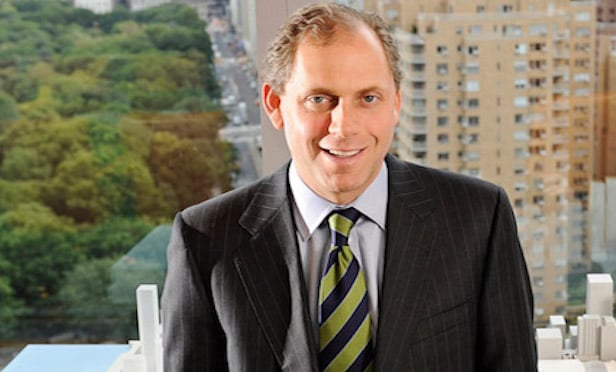SAN DIEGO—Culture—good or bad—speaks volumes to employees, clients and the general public; it's important to be in control of your company's culture so that it says what you want it to, real estate veteran Scot Sellers told attendees at a PCBC lunch event Thursday. Sellers, the retired CEO of apartment owner and developer Archstone, was interviewed by Doug Bibby, president of NMHC, on the topics of career, family and the importance of company culture.
Sellers retired in 2013 after more than 20 years at Archstone, most of them as the company's chairman and CEO. During his 12 years leading the frim as a public company, Archstone delivered a total shareholder return of more than 720% and grew dramatically to become one of the largest publicly traded real estate companies in America. In addition to his career at Archstone, Sellers has been a board member for a number of companies and currently serves on the boards of the Howard Hughes Corp., the Irvine Co. and Inspirato LLC, as well as an advisor to the board of Monogram Residential. Fascinated by human interaction since his childhood, Sellers has made this one of the cornerstones of his management style and approach to life, which he emphasizes in his first book, Regret-Free Living.
During the event, Sellers said growing up, he was a math nerd not unused to being thrown into the pool with his clothes on. He became introspective and developed an appreciation for leadership and culture. Originally a pre-med major in college, he changed course and decided to go to business school, obtaining his MBA from Stanford. He entered the real estate industry during a time of the industry's depression in 1981, working for Lincoln Property Co. under Dean Henry. Henry sent Sellers to Denver to learn about the apartment business and eventually gave him that market. “That was the culture: find a piece of dirt and built.” After building hundreds of apartments in a three-year span, Sellers moved to California and restructured a lot of the company's debt.
Later, Sellers worked for Bill Sanders at Security Capital Group, whom Sellers called a visionary. “He had the capital to hire people in 1991-1993, when real estate jobs were hard to get.” Sellers said he brainstormed with Sanders on people to steal from other real estate companies and developed a strategy: “sell everything we own and move it to someplace else,” eventually forming Archstone.
Sellers cites the people as being most important to the formation of this company. “The people grew with us.” He said it's fun to take young people in and watch them grow. “It's fun building a culture. The single most important thing that defines a company—good or bad—is culture. A positive, service-oriented culture is what we wanted to develop.” He says they set out to educate people and built trust. “We were renegades. We announced in 1994 we would move from El Paso to California—the cap rates were higher in El Paso than in California, so you're diluting your income by 30%—and that we would do this for seven to 10 years. This got negative press, but we were right.”
Sellers said building for the long term is the hardest thing for a public company, and Bibby asked him about the positive and negative experiences in being a CEO developing a culture. “Honesty is incredibly important,” said Sellers. “We did a lot of off-market transactions because the people we worked with trusted us—we were honest and did what we said we would.” Hiring people “with the desire to serve others” was hugely important. He added, “You have to be willing to excise people from your culture who don't fit—that's hard to do.”
Sellers also spoke of the time when Lehman Brothers, which owned Archstone, was going through bankruptcy and the sale of Archstone to Equity Residential. “Our performance over that time was better than others because we kept our team together and stayed positive. We couldn't believe Equity wouldn't come in and do a deal with us, but the sale allowed people to grow even though the culture is not the same.”
Bibby said once you get into the apartment business, nobody leaves. He asked Sellers what was so fulfilling about it. “Apartments in the long term are one of the top two or three performers” in the real estate industry.”
Sellers said he is cautiously optimistic that the apartment market will have a couple of years of runway, adding that we need to allow the banks to get back to lending, reduce the corporate tax rate and focus on repatriation.
Want to continue reading?
Become a Free ALM Digital Reader.
Once you are an ALM Digital Member, you’ll receive:
- Breaking commercial real estate news and analysis, on-site and via our newsletters and custom alerts
- Educational webcasts, white papers, and ebooks from industry thought leaders
- Critical coverage of the property casualty insurance and financial advisory markets on our other ALM sites, PropertyCasualty360 and ThinkAdvisor
Already have an account? Sign In Now
*May exclude premium content© 2024 ALM Global, LLC, All Rights Reserved. Request academic re-use from www.copyright.com. All other uses, submit a request to [email protected]. For more information visit Asset & Logo Licensing.








